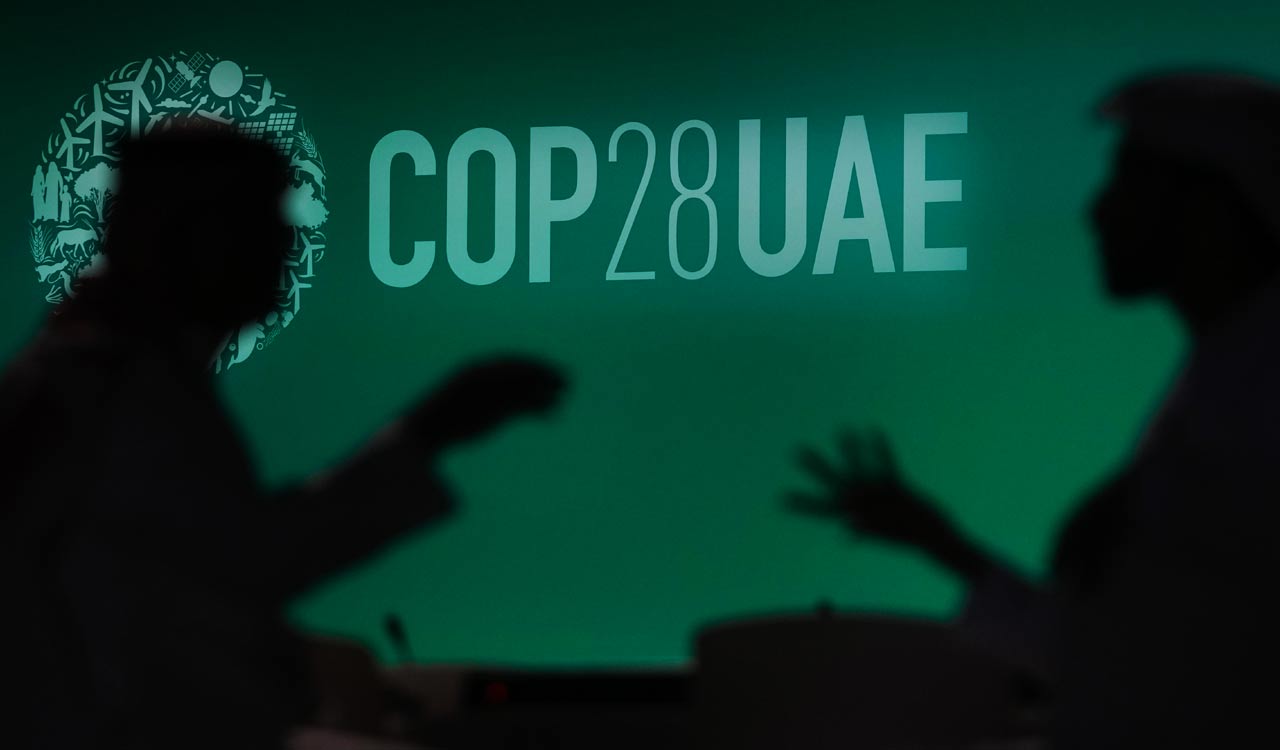With 2023 being the hottest year in recorded history, the Dubai conference will serve as a reality check for mitigation efforts
Published Date – 11:30 PM, Wed – 29 November 23

People are silhouetted against a logo for the COP28 U.N. Climate Summit, Wednesday, Nov. 29, 2023, in Dubai, United Arab Emirates. (AP Photo/Rafiq Maqbool)
As the world leaders gather in Dubai for the United Nations Climate Change Conference — COP28, tough questions need to be asked: whether the commitments made in the past have been honoured and in which direction the global efforts in fighting the climate crisis are moving. With 2023 earning the dubious distinction of being the hottest year in recorded history, the event will serve as a reality check for mitigation efforts. The elephant in the room is the unfulfilled promises made by the rich and developed nations to support poor countries in dealing with climate disasters. The commitment of $100 billion per year made over a decade ago by developed nations is minuscule, given the scale of the needs. Even that commitment has not been fulfilled so far. The flow of funds has been erratic and inadequate over the years. Though the ‘Loss and Damage Fund’ was established at the climate summit in Egypt last year, there has been no agreement as yet on the obligations of the historic emitters and no substantial flows of cash. While fighting climate change is everyone’s job, the rich and developed countries must bear the bulk of that responsibility, not just because they have caused most of the emissions but also because they have greater resources and capacity to act. The United Arab Emirates (UAE), hosting the event this time, faces the crucial task of breaking the current impasse and delivering on its promise to devise a funding plan to bridge the Global South’s annual $1 trillion shortfall in financing for mitigation and adaptation initiatives.
The Dubai conference should also be seen as a reality check for the oil and gas industry on the role that it needs to play in dealing with climate disasters. In fact, oil and gas is another elephant in the room. Though often touted as a cleaner fuel than coal, it accounted for 54% of the total greenhouse gas emissions, compared with 40% of coal. And, it is the preferred fuel choice of the developed world, accounting for 70% of the energy needs in the United States and 60% in the European Union. While an agreement was reached at the Glasgow conference — COP26 — to phase down coal use, no such commitments have been made for oil and gas, though it is clear that prolonged reliance on such fuels will blunt the fight against climate change and will make it impossible for the world to achieve the goal of limiting global temperatures to 1.5 degrees Celsius above pre-industrial levels. For India, the deliberations provide yet another opportunity to voice the concerns of the developing countries. India cites its low per capita emissions to counter any international demand to cap its overall emissions, arguing that it needs to lift its people to similar standards of living as in the developed countries.




